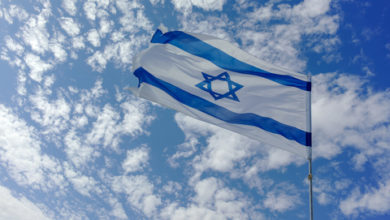A Question for Isaiah
This week’s Haftarah includes one of the most difficult verses in all of the books of the prophets: “In the year King Uzziah died, I saw G-d sitting on an exalted and lofty throne and the hems of His cloak filled the Sanctuary” [Isaiah 6:1]. How can anybody talk about “seeing” G-d, even if we assume that this is an allegory? Even in an allegory there are internal rules that establish limits on what can be said. As is explicitly written, “No man can see Me and live” [Exodus 33:20].
The sages teach us that Manasseh, King of Judah, turned to Isaiah and asked him to clarify his words. “He said to him: Your master Moses said, ‘No man can see Me and live,’ how can you say, ‘I saw G-d sitting on an exalted and lofty throne’?” [Yevamot 49b]. Yeshayahu did not want to answer Manasseh because he was asking in order to get the best of the prophet and not in order to really understand. But what would Isaiah answer us if we asked this question? There are of course philosophical approaches that provide answers, such as differentiating between various levels of revelation, or between different names of G-d (aleph-daled-nun-yud in Isaiah’s prophecy, yud-heh-vav-heh in the command to Moses), between looking at the “front” or the “back” of G-d, and so on. But such topics were not usually raised during the times of the prophets. Perhaps we can say that since the prophecy of Isaiah is based on his experience there is no need to explain it in abstract terms. If we were able to ask what he meant by his statement that he saw G-d – did he mean the essence or external elements, speech or a physical phenomenon, was he referring to a new category of consciousness – he would probably have answered simply, “I saw G-d.” He would not have felt any need to explain how this does not contradict the prohibition to engage in anthropomorphism.
Based on this approach, we can possibly explain why in his book on the Kuzari Rabbi Yehuda Halevy divided the discussion of the titles of G-d into two essays – the second and the fourth chapters. In the second chapter, the discussion of names is entirely philosophical and is related to the era after the end of prophecy, when there is no longer any revelation of the Shechina (the Divine Spirit), and the intellect is the only way to understand the written word. The intellect only recognizes negative names which completely contradict anthropomorphism. But in the fourth chapter the discussion involves the language of the prophets, who had the merit of experiencing a direct revelation by G-d, which has a positive connotation, and they encountered the names of G-d that are related to yud-heh-vav-heh. The differences between the two eras are what prevent modern man from understanding the internal world of the prophets.
In spite of our great mental distance from a true understanding of the essence of what he said, Isaiah has left us with an important message: The very same G-d, who is totally separated from all the creatures, about whom the angels declare “Holy, Holy, Holy…” meaning that He is far away from us, without any defined goal (as noted by Rabbi Yehuda Halevy, that Isaiah heard the word “Holy” without any stated purpose), is the One who “fills the entire world with His glory.” He faces mankind, which was never abandoned by G-d, and He supervises every move of mankind and answers his prayers.
Source: “AS SHABBAT APPROACHES” – a biweekly column in Shabbat B’Shabbato (Zomet Institute) See: http://www.zomet.org.il/eng – Yitro 5775, issue 1561.




